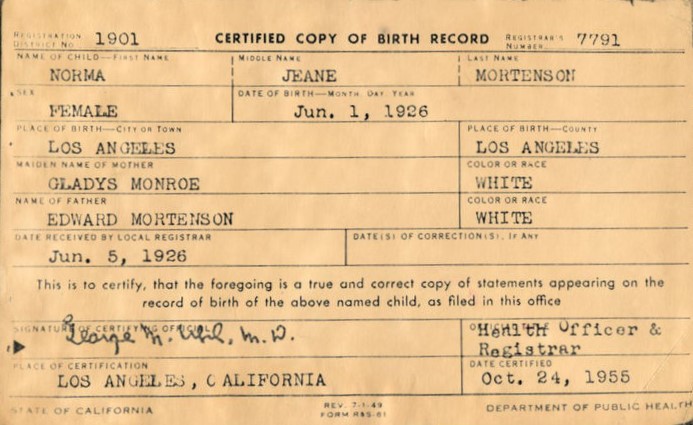
Jesse Ginn was motivated to leave North Carolina for Georgia due to the lure of free land under Georgia’s headright and bounty land grant system. He and his family received 283 acres in 1793 and then 200 acres in Elbert County in 1795. Georgia was trying to encourage settlement by farmers in the interior areas of the state. After Jesse’s decease, though, it was his widow Sarah who was a “fortunate drawer” in the seventh land lottery held by Georgia in 1832. She was awarded a 40 acre lot in Cherokee County which had originally been Cherokee Indian territory. The state of Georgia used a unique lottery system to distribute land between the years of 1805 to 1833. There were eight lotteries held in total. Although a few other states tried a lottery system, none was to the scale of Georgia’s implementation. In most cases, the land to be distributed had been part of the Creek or Cherokee nation. Surveyors organized the land to be distributed, laying it out into districts and lots. The lot sizes varied widely with the largest being 490 acres in the 1805 and 1820 lottery. The smallest was 40 acres in the “Gold” lottery of 1832. After the surveyors completed their work, the district and lot numbers were then sent to the Governor’s office. The General Assembly passed acts to authorize each lottery and decided who was eligible to participate. As in the case of Sarah Ginn in 1832, she was eligible for 1 draw due to being a widow, specifically widow of a Revolutionary War soldier according to Elbert County records. The General Assembly also decided what grant fees would apply to lots drawn and awarded. Eligible citizens in each county registered their names and place of residence. The Act passed for the first land lottery occurred 11 May 1803, with the first drawing held in 1805. By the second drawing held in 1807, the eligible names were written on paper tickets and placed in a drum. The district and lot numbers were placed in a second drum along with blanks. Commissioners assigned by the Governor drew a name ticket from one wheel and a district ticket from the other. If the district ticket was blank, then the person whose name was drawn received nothing. If it contained a district and lot number, it was considered a “fortunate draw” and the person was awarded that lot parcel. Persons with a fortunate draw could take out a grant for the lot by paying a grant fee. If a grant was never taken, then the lot reverted back to the state and sold to the highest bidder.

The eight lotteries were held in:
- 1805 (Creek Indian Lands west of the Oconee River relinquished to the State in 1802; located in Baldwin, Wayne and Wilkinson Counties)
- 1807 (additional Creek lands, Baldwin and Wilkinson Counties)
- 1820 (following the Creek War of 1814, Pres. Andrew Jackson forced the Creek and Cherokee Nations to give up more land; lots in Appling, Early, Gwinnett, Habersham, Hall, Irwin, Rabun and Walton Counties)
- 1821 (additional lands surrendered by the Creek Nation in a treat 9 June 1821; Dooly, Fayette, Henry, Houston, Monroe Counties).
- 1827 (lots in Carroll, Coweta, Lee, Muscogee, and Troup Counties)
- 1832 (6th) “Cherokee Georgia Lottery”, Georgia did not have a claim to the land it distributed in this lottery; lots in Cass (renamed Bartow), Cherokee, Cobb, Floyd, Forsyth, Gilmer, Lumpkin, Murray, Paulding, and Union Counties, which was originally Cherokee County and prior to that Cherokee Indian Territory.
- 1832 (7th)- the “Gold Lottery”, gold lots were drawn between 22 Oct 1832 – 1 May 1833; same counties as the 6th lottery.
- 1833 (8th) Drawing of land lots 6 – 7 December 1833; Original Cherokee territory and a handful of land lots not placed in the prize wheels during earlier lotteries.
Various genealogy databases and publications offer indexes of the lottery drawings and the Georgia Surveyor General publications have been microfilmed by the Family History Library (See Library Catalog at FamilySearch.org).The Georgia State Archives in Morrow, Georgia holds all of the administrative records related to each year of the land lotteries. The collection also includes plat books, records and grant books for each county where lots were awarded. (see Finding Aids@ Georgia Archives) SOURCES:http://www.georgiaarchives.org/research/land_lotteryhttp://www.mesarfhc.org/powerpoint_training/pdf_files/georgia_land_lotteries.pdfhttps://www.raogk.org/georgia-genealogy/ga-land-lottery/http://www.sshps.org/lottery2.htm (map source)Click here to receive help from an expert with your Georgia genealogy research.




